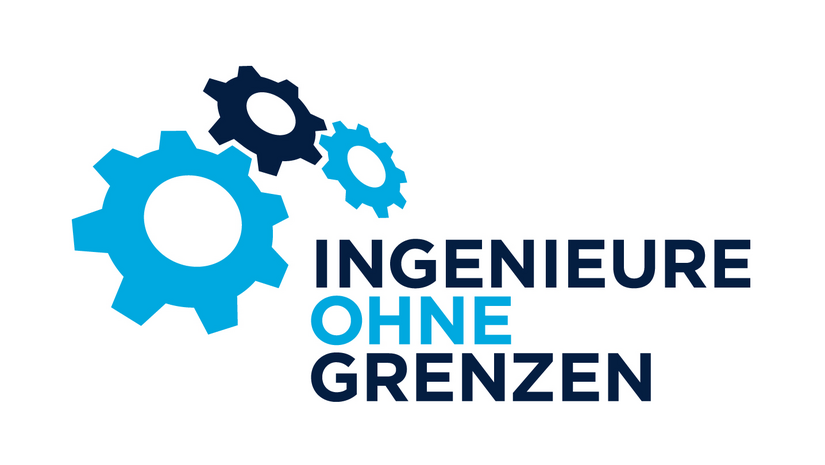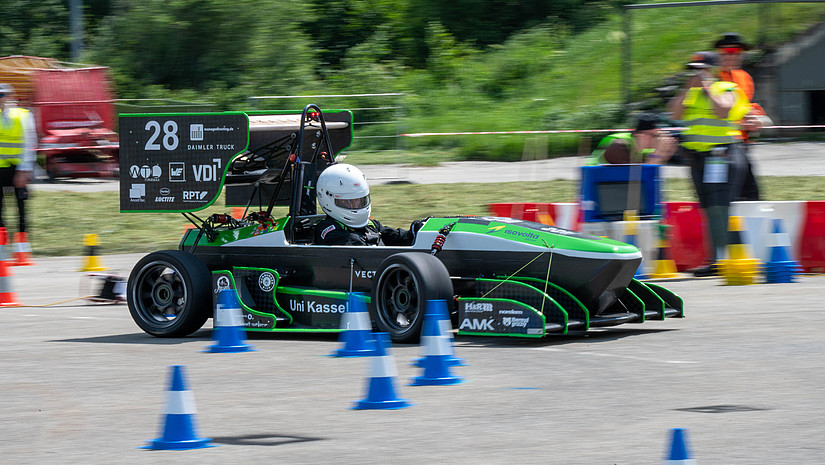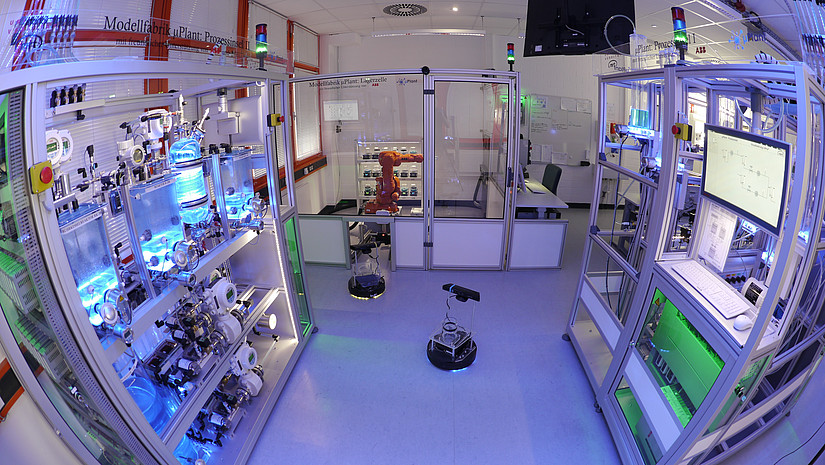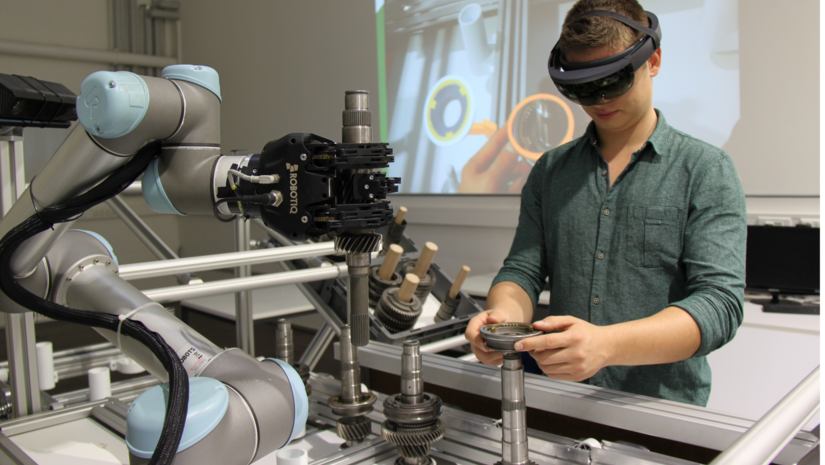Projects
The content on this page was translated automatically.
Project-based learning in the Bachelor of Mechanical Engineering
In a rapidly changing technological world, it is crucial that mechanical engineers not only have theoretical knowledge, but that they can also apply it in practice and adapt it to the situation.
Our Bachelor of Mechanical Engineering students acquire this ability in three consecutive 'learning on projects' modules. They design, simulate, program and build prototypes in order to find solutions to real technical problems.

To this end, students choose a suitable project from a wide range of options in the third, fourth and fifth semesters. These differ in terms of content, but address the following three main areas:
This module focuses on the development of basic project skills. Students acquire skills in the areas of project coordination and conception, group work and the presentation of results. They also gain initial experience in the analysis, creative development of solutions and implementation of technical problems.
This module provides in-depth knowledge of digital technologies and applications. Students deal with current developments in digitalization and apply their knowledge to practical projects. They gain deeper insights and experience in a sub-area of digitalization or deepen their existing knowledge.
The last module emphasizes interdisciplinary collaboration in technical projects. Students are encouraged to work across specialist boundaries in order to find holistic solutions to complex engineering problems. They learn about the requirements and expectations of different project participants in a project and can categorize these sometimes competing positions.
Projects
Many of the projects are designed as large units with an overarching objective. This allows students to work on different facets of a problem in three consecutive semesters and build up in-depth know-how in an area relevant to them due to the increasing complexity of the project parts.
The modular structure of the courses also allows students to switch between projects on a semester-by-semester basis and thus build up a wide range of specialist skills.
Formal design and assessment of the modules
In principle, registration for the projects takes place via the document procedure at Hispos. An information event on the projects offered will take place on 22.04.2025 at 15:30 on the department day, after which the registration procedure will be open until 24.04.25. Please note that the maximum number of participants is limited and admission to the project after the deadline is only possible in exceptional cases.
The project modules conclude with an ungraded piece of coursework. This can consist of the completion of subject-specific tasks, learning portfolios or final reports and presentations. The coursework aims to promote not only the acquisition of subject-specific knowledge, but also the development of skills in problem analysis and creative solution finding and to open up scope for practical implementation.
Yes, the projects are also open to +MINT students.
In order to optimally prepare all students for their projects, the project modules are designed according to a blended learning approach. This means that, in addition to working on their actual projects, students complete an online course on relevant project management topics before and during this phase. In this way, they not only acquire theoretical specialist knowledge, but can also apply it straight away. This also promotes the development of key skills such as teamwork, time management and effective communication.
Collaboration in the projects is intensively promoted through modern collaborative working methods and tools. Depending on the project, students have access to project management software that enables them to organize tasks, track progress and communicate efficiently. Online whiteboards serve as interactive work surfaces on which concepts can be sketched and creative solutions developed.
Our students have access to departmental workshops and can use the latest technology there. They are also provided with the necessary project-specific hardware to implement their solutions - including 3D printers, computer units, sensors and actuators. The workshops provide the technological infrastructure required to implement innovative projects. This enables students to turn their ideas into reality and hone their technical skills in practice.
However, there are also joint projects in which project 1 and 2 can be completed in combination in one semester.
In principle, students can also contribute their own project ideas if a department takes on the patronage for them: So if you have a project idea, talk to Professors. If necessary, the supervising Professors can also apply for funds for the technical implementation of the idea from QSL project funds.
If you have an activity alongside your studies that is conducive to achieving the learning objectives of the project modules, these extracurricular activities may be credited. These individual decisions are the responsibility of the Dean of Studies.





